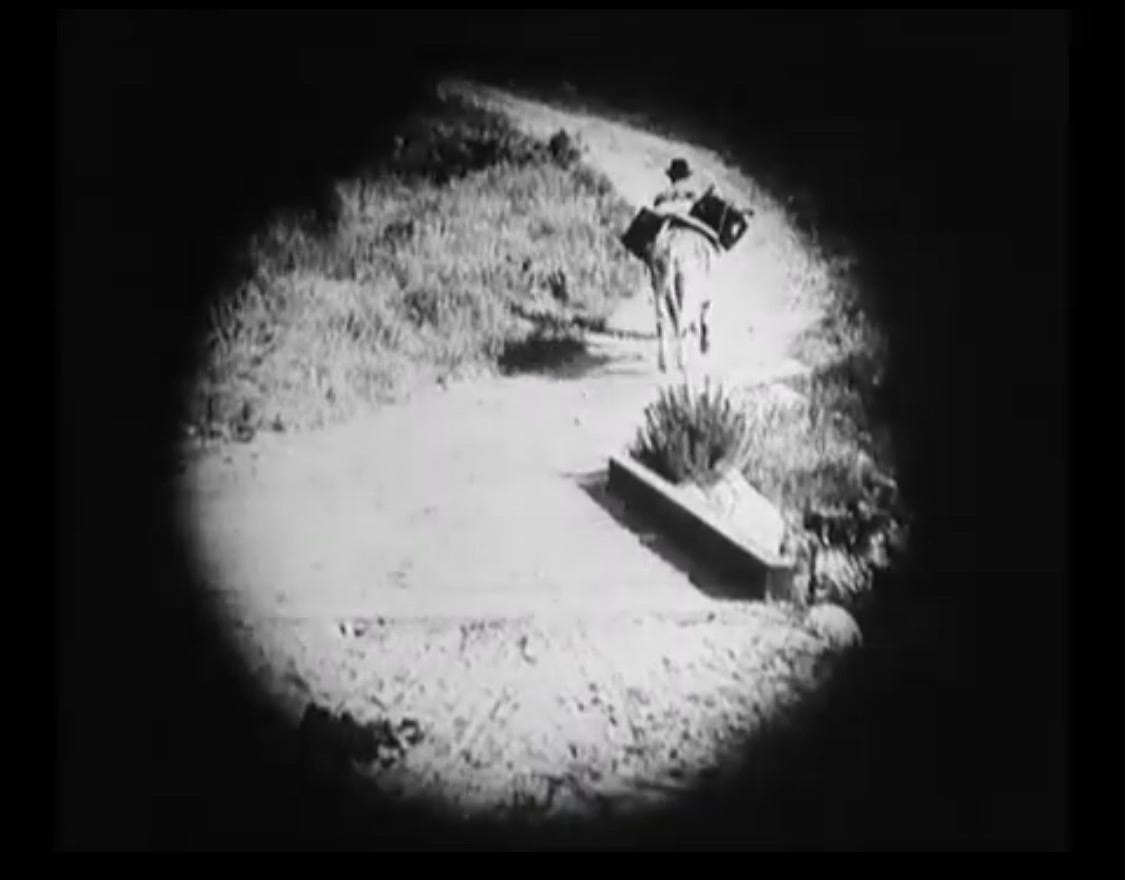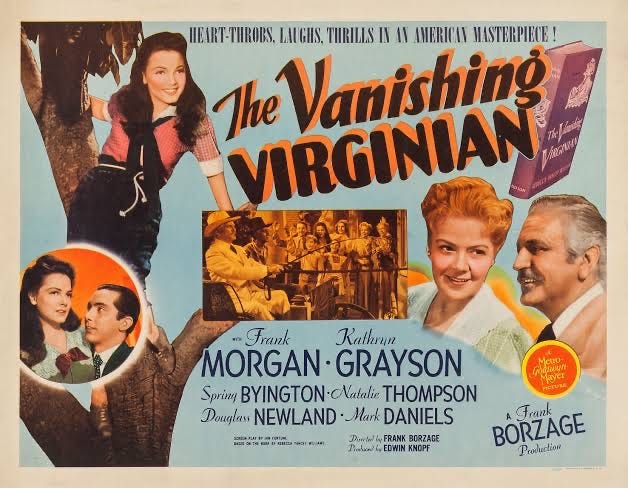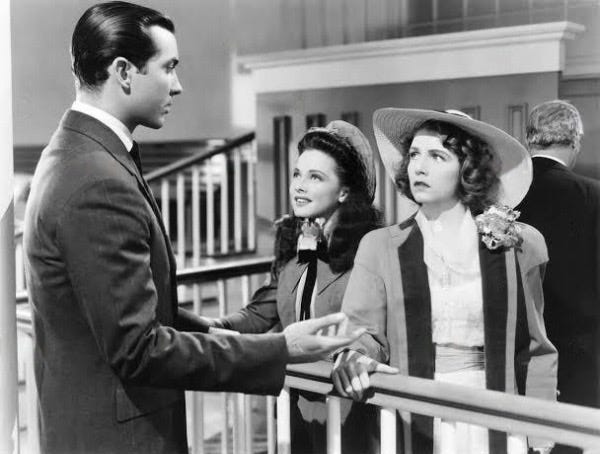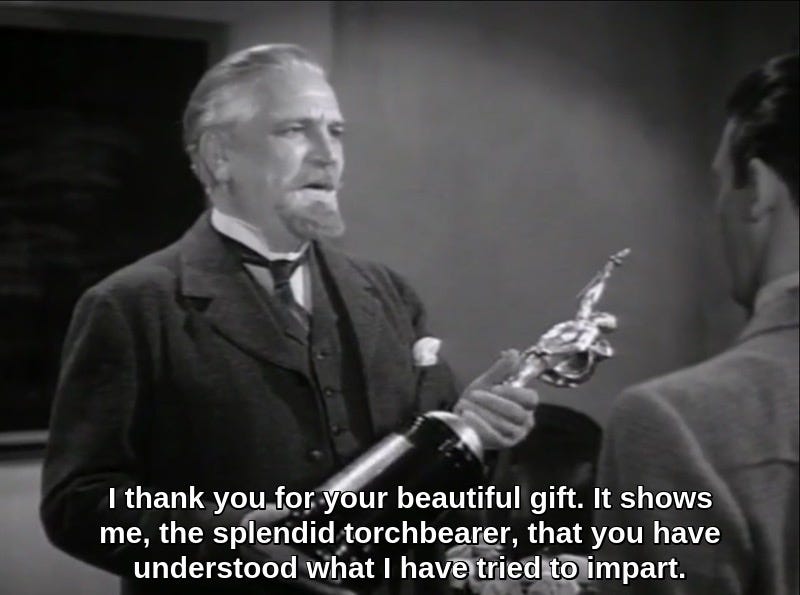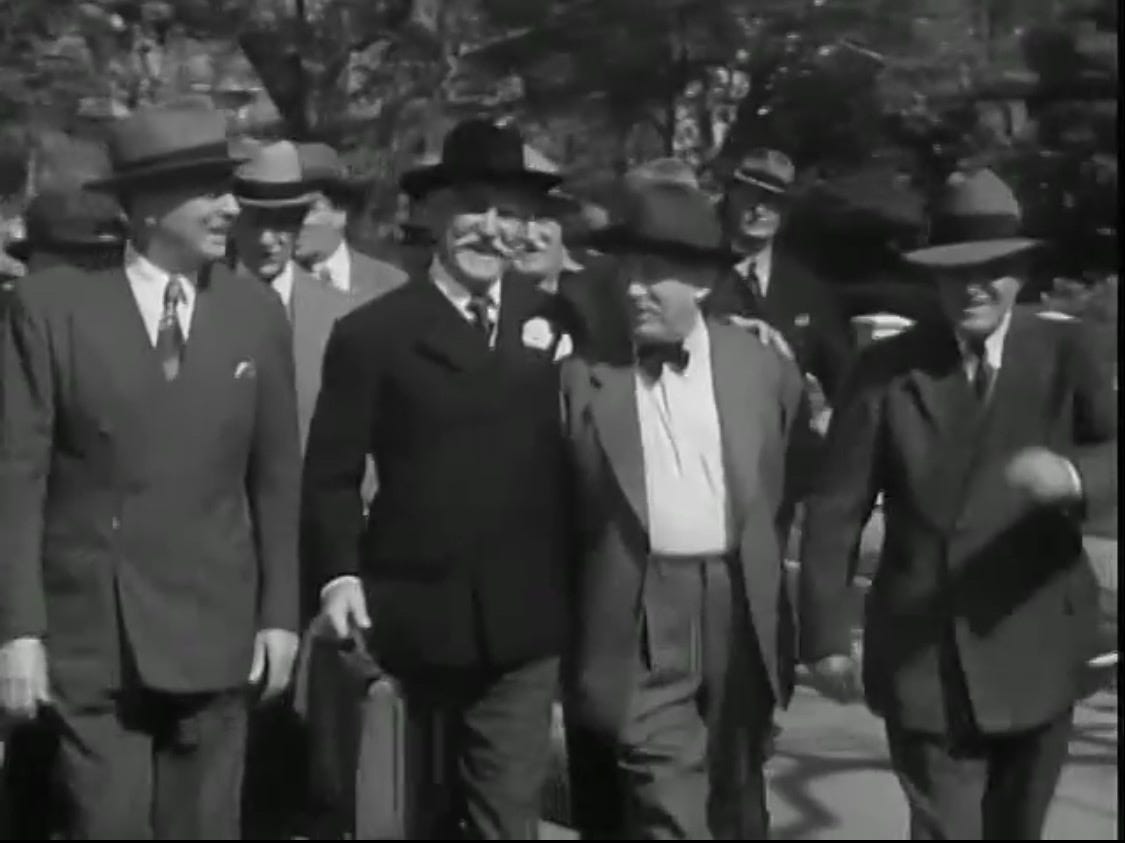Frank Borzage: The Prescience of the Artist, the End of an Era and New Beginnings
Borzage's legacy as a filmmaker of the 20th century often comes with the caveat that he is vastly underseen and underappreciated, and his films have suffered under the yoke of a society veering towards the veneer of the "psychological drama and gangster picture" (his words), a society where neglect devalued his contributions to cinema for decades - and yet Borzage was keenly aware of his fading star in the 1940s - and created several films that articulated his own aspirations for what the future would hold for his legacy in the rapidly changing world around him, in creative endeavours that, in lieu of his entire filmography, are as heartrending and passionate as his early silents where he established himself as a creative and endeared himself to audiences the world over.
Frank Borzage made a name for himself as an actor and star of Western silents, where he frequently played cowboys and outcasts seeking connection and a meaningful life with others - but despite their best efforts to acclimate occasionally his characters were forced to contend with their perennial pariah status and embrace their altered role to enter a society altered or fade into obsolescence and obscurity.
Borzage's preoccupation with romance and earnest connection earned him his stripes across the 1920s and 1930s, and hit his stride in the world's preoccupation with gentle warmth and a stirring love story enduring amidst societal adversity. It was something that the general public relished given how analogous it was to their own lives: they could see themselves self-inserted into “Man's Castle” as Loretta Young, or as the intrepid Jessie Cassidy in “Mannequin”, or Margaret Sullavan's sensitivity and kindness in "Little Man, What Now?" - of characters that struggled to survive but never lost touch with their compassion for others and a desire to have the life that gives them the most freedom - against the backdrop of a cruel world. Kindness and self-determination is Borzage's prerogative across his oeuvre, and the moviegoing public relished the ability to see themselves as the best of humanity, of characters that cared for one another and looked out for each other in times of turmoil.
But with the onset of the Second World War and the cynicism that it propagated as the years went by, it meant that Borzage's romanticism was slowly but surely fading from the public consciousness in favour of lithe darkness, the brutality and reality of war dominating daily discourse, that reflected a cinematic seachange in the form of crime dramas and thriller movies becoming increasingly popular - because they reflected the hostility and interpersonal attitudes of the world around them.
The world no longer had room for Borzage and the ideals he espoused, of the serendipity of connection, of "being around the right people and environment helping one flourish and embrace their true nature", and left Borzage stranded to contemplate his future in an industry that was slowly but surely leaving him behind (I think this also makes Borzage mirror Georges Méliès, a filmmaker who also fell out of public favour thanks to the onset of a war denuding the interest in his vision of a fantastic world - and reminds me that Borzage needs the "Hugo" treatment ASAP).
And yet Borzage, ever the percipient, was cognizant of the seachanges taking place in the American cinematic landscape of the 40s, sought to use his filmmaking as a vehicle to explore characters on the threshold of a changing society, having a longing for the values of the past and a resistance to the future where cynicism seeps into the upholstery, as a rallying cry for his audience to hold dear what they once relished and identified with - which his characters either learn to come to terms with and champion, or peacefully fade out into the horizon.
Thus an element of self-insertion for Frank Borzage coalesces in the form of Robert Yancey in "The Vanishing Virginian", a public representative played by Frank Morgan, seeking to run for office one more time to spite a younger man seeking to become the new Governor.
Yancey sees himself and his daughters as Virginian traditionalists (despite the fact that they both are very different and defiant of the pigeonholing their father has done for them), and is vocal in denouncing Prohibition because he views it as impossible to enforce - and decides to run for Governor to stop a younger public servant hellbent on introducing it.
The film is full to the brim with commentary on past, present and future, of tradition and progressiveness, of history and legacy, and of people following on in the footsteps of their forbears. The Yancey family are obsessed with family ancestry and genealogy, and have expectations for their children: the eldest daughter should be a musician and the youngest a painter - despite both harbouring different aspirations, one wants to follow in their father's footsteps as a lawyer, and the other wants to be a singer.
The treatise upon tradition and of fighting against societal foibles that manifested in Borzage's other features commenting on economic turmoil, the Great Depression, the fleeting obsession with war that erodes connection and compassion, as elements its characters rail tooth and nail against through how anathema they are to the human condition - makes Borzage self-inserting himself as Robert Yancey, articulate his desire to remain a societal mainstay and retain his popularity in denouncing the evils on the horizon that threaten to alter the fabric of a society.
It also serves as a microcosm (and reminder) of Borzage's more prescient filmmaking endeavours having one eye on the future and imparting messages of forewarning to future generations, and for audiences to heed his warning and not let the cynicism of the world around them denude the sensibilities of what they want to see in art.
"The Vanishing Virginian" is part rallying cry, part cry for help, part intense reflection by Borzage on his own status as a cinematic pioneer, serving as a close examination of Borzage's introspection into his own career - and his efforts to diversify to remain relevant to the new generation of storytelling ethos more interested in gangster films and crime dramas (that would ultimately coalesce in 1948's Moonrise, a film noir that speaks to a treatise around compassion breaking the never ending cycle of cruelty that noir is synonymous with) - and serves to outline how percipient Borzage was about his future as a filmmaker and how future generations would view his work, if ever.

This self-awareness within Borzage reckoning with the preservation of themes near and dear to his heart, is also articulated in “The Mortal Storm” - where Frank Morgan plays another older character, a wizened teacher and mentor startled by the virtues he and his society stands by, being utterly denuded by the rise of incorrigible fascistic elements within the youthful students in his care - and "His Butler's Sister", where Franchot Tone portrays a famed creative with a knack for exploring journeys of love and its striations from uncommon sources, who has lost inspiration and seeks to rejuvenate his own career through the adoration of his fans that remind him what his works mean to many, and help inspire him with new conceptions of love.
Borzage, by and large reflecting on his own impact and longevity as a creative, contends with the legacy he will be leaving behind for those that look back, as those future generations that follow him become preoccupied with different matters and societies lose touch with the traditions that he held dear (for better and for worse).
In keeping with Borzage's preoccupations during this tumultuous era of cinematic seachanges and shakeups, the final shot of "The Vanishing Virginian", of the downtrodden yet determined Yancey with his head held high, walking to work with all his supporters, friends and well wishers to "Auld Lang Syne", could very well be Borzage manifesting his desire for his own swan song as a director.
With the current interest and resurgence in his career owing to certain remasters and re-releases, one can only hope Borzage is on cloud nine (or seventh heaven) that his films and the themes in them still retain their resonance even in the year 2024.



